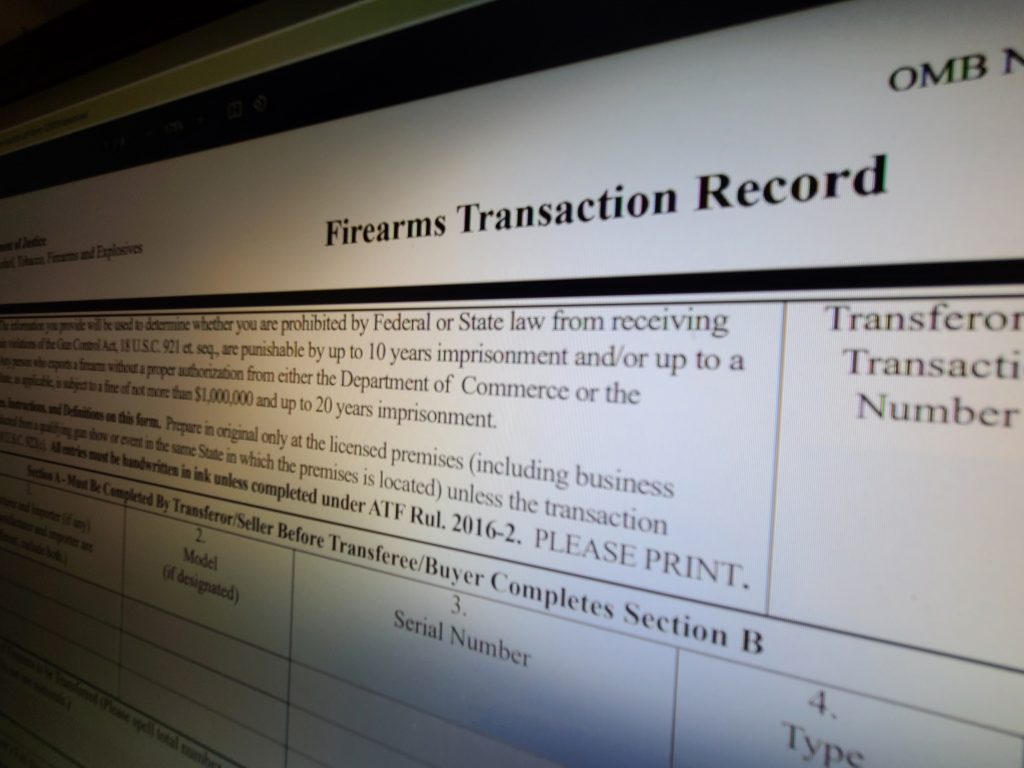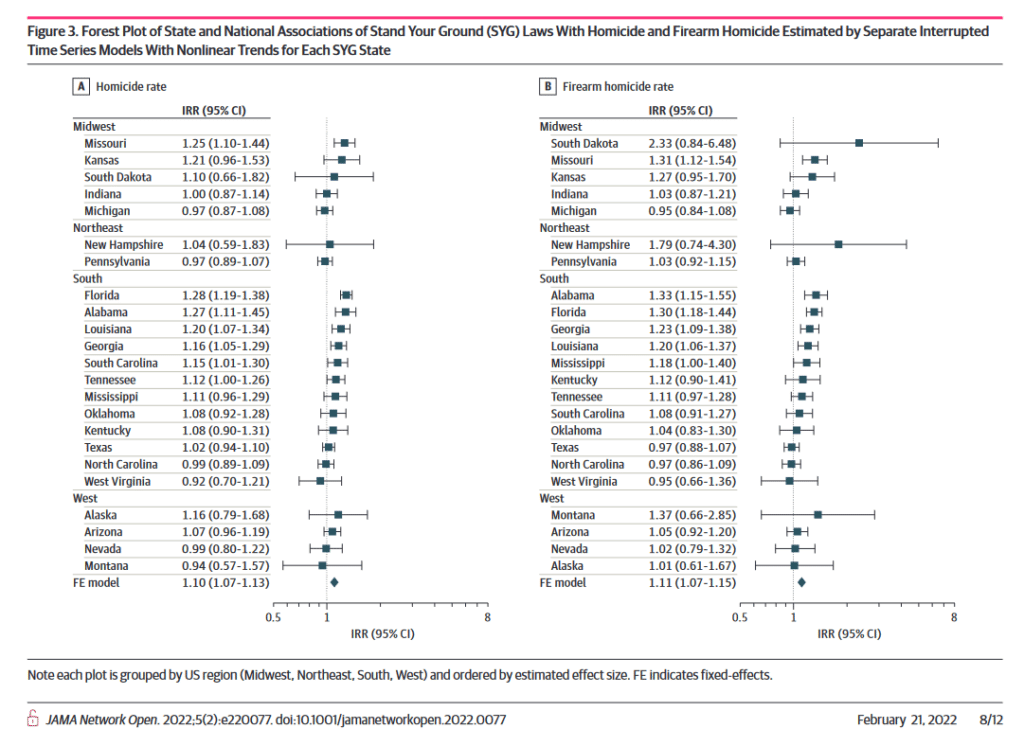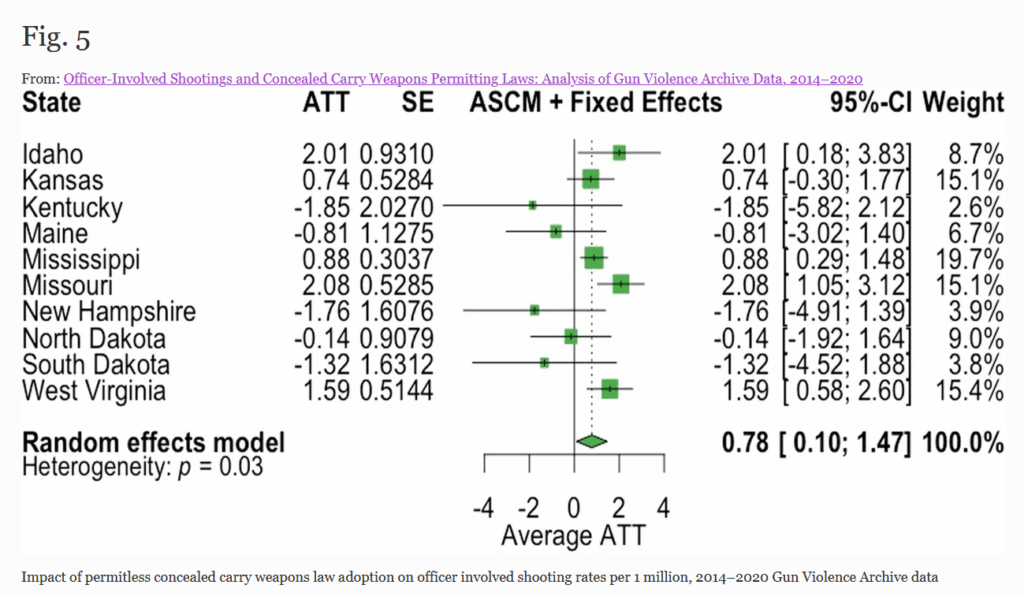I hope you and your loved ones are enjoying this beautiful July 4th weekend. Whether you’re having some BBQ, spending time on the water, or setting off some fireworks I hope it’s a good time.
This week, we take a look at how California’s massive leak of gun owner data undermines trust in registries. And Professor David Yamane examines two recent studies that claim permitless carry and “Stand Your Ground” laws cause violent negative outcomes. The studies have gotten a lot of attention, but how reliable are their conclusions?
Plus, Contributing Writer Jake Fogleman and I answer your biggest gun questions on the podcast.

Analysis: The California Data Leak Vindicates Gun Owner Registry Fears [Member Exclusive]
By Jake Fogleman
The government of California and gun-rights advocates have long had a bit of a tenuous relationship. But following an egregious new data leak, the state may have unintentionally vindicated the concerns of many gun owners in the state and across the country.
The Reload confirmed on Tuesday that the personal identifying information of thousands of the state’s concealed-carry permit holders was exposed when the state rolled out its 2022 Firearms Dashboard Portal. But Attorney General Rob Bonta (D.) later revealed that the leak was in fact far worse. Beyond private data on permit holders statewide, data from the state’s “assault weapons” registry and dealer records of sale were also leaked, as well as information on gun violence restraining orders, the state’s handgun roster, and firearms safety certificates.
The personal data, which was eventually removed, included details like name, race, address, date of birth, and the type of permit issued–which indicated if a holder was a police officer or judge.
“This unauthorized release of personal information is unacceptable and falls far short of my expectations for this department,” Attorney General Bonta said. “I immediately launched an investigation into how this occurred at the California Department of Justice and will take strong corrective measures where necessary.”
While a swift investigation into the leak is indeed warranted, gun owners will take little solace in the Attorney General’s statement. That’s because such data was only available to be leaked due to the unparalleled requirements California imposes on record keeping, information sharing, and registration for gun owners in the state.
California law has required the registration of handguns since 1998 and all long guns since 2014. Additionally, the state keeps centralized records of all firearm purchases or transfers at California licensed dealers in the state. The same is true for registered “assault weapons”, individual reports of firearm ownership required to be submitted to the California Department of Justice, concealed weapons permit records, and records entered by state law enforcement agencies.
Many gun owners have long been opposed to such onerous record-keeping, particularly gun registries, out of fear that detailed records could be used to facilitate future government confiscation efforts. But a close second to those fears are concerns over gun-owner privacy and safety from being targeted by criminals. Those concerns were expressed yet again in the aftermath of the DOJ’s data leak.
“The Attorney General has put thousands of people in danger by essentially handing criminals a ‘shopping list’ of homes to burglarize in search of firearms, a list of judges to murder, addresses of stalking victims for their stalkers to find, locations of battered women and rape survivors, and home addresses for police officers,” Chuck Michel, President of the California Rifle & Pistol Association (CRPA), said of the leak. “Careers of individuals excising their right to self-protection may now be in jeopardy given this public disclosure as well.”
Making matters worse, California had already begun upping the risk to gun owners’ privacy even before the flawed rollout of the state firearm dashboard. It passed a law just last year authorizing the state DOJ to release all of its records associated with firearm and ammunition purchases–including personal identifying information–to a newly created research center at the University of California Davis or any other university that requests them.
That move drew a legal challenge from the NRA who equated the mandatory data disclosure to state-sanctioned “doxing.” The group attempted to have the law blocked while the lawsuit played out but was denied by a federal judge who was not persuaded that the privacy concerns surrounding the law warranted an emergency injunction.
In a new filing, the NRA argued the leak perfectly showcases the privacy concerns at hand. The gun-rights group said the judge relied on California’s insistence it would protect gun owners’ data.
“Now, however, the newly discovered evidence […] shows not only that there is a risk of public disclosure, but that such public disclosure occurred despite Defendant’s representations to the contrary,” the group wrote in its filing. “Plaintiffs thus have suffered irreparable harm warranting an injunction. Moreover, Defendant’s conduct shows that, in the absence of an injunction, there is nothing to stop Defendant from once again disclosing Plaintiffs’ Personal Information to the public or third parties.”
The damage done by the leak cannot be overstated, not only for the trust of the gun-owning population in California but for gun owners nationwide who have had their hostility toward firearm record-keeping reinforced by the scandal.
Podcast: A Q&A On the Supreme Court Gun Decision, New Federal Gun Law, and ATF Regulations [Member Early Access]
By Stephen Gutowski
Thanks to the first major Second Amendment ruling from the Supreme Court in over a decade and the first new federal gun restrictions in a generation there’s a lot of uncertainty about America’s gun laws. So, we thought it was a good time to answer some of your questions.
Contributing Writer Jake Fogleman and I took submissions from Reload Members on their most pressing concerns. We got questions on everything from how the ruling in New York State Rifle & Pistol Association v. Bruen affects the other pending gun cases before the Court to how stable the new standard set in the case really is. We talked about whether Bruen presents a risk to the new federal gun law and the details of the new law’s gun provisions.
We also covered the impact of not just Bruen but also the Court’s ruling in a recent EPA case on a variety of ATF regulations.
You can listen to the full episode on your favorite podcasting app or by clicking here.
Video of the show is also available on our YouTube channel.

Analysis: Do Gun-Rights Protections Really Increase Violence Outcomes? [Member Exclusive]
By David Yamane
The United States Supreme Court decision in NYSRPA v. Bruen was not surprising to many, but neither was the response by those opposed to it.
Of note are comments by New York Governor Kathy Hochul (D.) about how “the insanity of the gun culture that has now possessed everyone all the way up to even to the Supreme Court.” She called the decision “absolutely shocking” and “frightful in its scope,” which “could place millions of New Yorkers in harm’s way.”
Here Hochul connects the expansion of lawful gun carry with increases in accidental or intentional gun injury. In doing so, she is taking a side in a political debate over whether civilian gun carrying is a net positive or negative for society that is as old as gun carry laws themselves.
Since the concealed carry revolution of the late 20th century, this has become an empirical question. John Lott’s book, More Guns, Less Crime, is a touchstone in an ongoing back-and-forth among scholars with no resolution in sight.
Much of this academic debate takes place over my head statistically, but when new studies are published on the topic, I do try to understand the empirical basis for their claims. That’s why I want to discuss two such recent studies: “Analysis of ‘Stand Your Ground’ Self-defense Laws and Statewide Rates of Homicides and Firearm Suicides” by Michelle Degli Esposti, et al. and “Officer-Involved Shootings and Concealed Carry Weapons Permitting Laws: Analysis of Gun Violence Archive Data, 2014–2020” by Mitchell L. Doucette, et al.
Both of these studies examine the effect of liberalized gun carry laws on adverse societal outcomes. The first study finds that passage of “Stand Your Ground” (SYG) laws are associated with increases in homicide rates, and the second study finds that passage of “permitless carry” laws are associated with increases in officer-involved shootings (OIS). We can certainly debate whether all officer-involved shootings represent a negative outcome in and of themselves. Still, I am willing to accept the authors’ assertion here that they are examining “the negative health consequences [of] Permitless CCW laws” (SIC) to focus on this other issue.
Examining the difference between 23 states that enacted SYG laws from 2000-2016 and 18 states that did not, Esposti and colleagues conclude: “the enactment of SYG laws was associated with an abrupt and sustained eight percent to 11 percent national increase in monthly homicide and firearm homicide rates.”
Examining the difference between ten states that adopted permitless carry laws from 2015-2019 and various synthetic control states, Doucette and colleagues conclude: “Permitless CCW adopting states saw a 12.9 percent increase in the OIS victimization rate or an additional four OIS victimizations per year, compared to what would have happened had law adoption not occurred.” I should note that synthetic control methods are complex and imperfect and readers who are able to do so may wish to interrogate these authors’ methodology which is extensively documented.
But, accepting the studies as they have been presented, what happens when we look below the surface of these summary statistics?
I have previously argued that the problem with averages is they can obscure significant underlying differences in the data producing the averages. Two very different distributions of data can result in the same average. For example, imagine two states that pass a liberalized gun carry law and both experience a ten percent increase in homicides. The average increase is ten percent Now imagine two other states that pass the same law, but this time one sees a 30 percent increase in homicide and one sees a ten percent decrease. The average increase is again ten percent. The average as a summary statistic only tells part of the story.
When we look at the underlying data in both these studies, we see the problem with averages.
Recall that the Esposti team found that collectively the 23 states with SYG laws saw eight to 11 percent increases in monthly rates of homicide. Looking at the underlying data tells a different story, though. Some states, notably in the South, saw significant increases in homicides while even more states, including many in the South, saw no increase.

The Esposti team finds that Stand Your Ground laws correlate to more firearms homicides nationally, but of 23 states with SYG laws, only five saw “incident rate ratios” large enough to reject a null hypothesis of “no effect”: Alabama, Florida, Georgia, Louisiana, and Missouri.
Even ignoring the “association is not causation” argument, if a theorized casual factor only has an effect in 22 percent of cases, it would not seem to be an independent causal factor in the outcome of interest. We need to know much more about what else is going on in those five states that act in concert with the gun policy that is not happening in the other 18 states with the same policy.
What about the Doucette study that purports to show that the shift from shall-issue to permitless carry laws is associated with a 12.9 percent increase in the number of officer-involved shootings of civilians?
Of ten permitless carry states that fit their selection criteria, only four had increases in officer-involved shootings large enough to be considered greater than chance: Idaho, Mississippi, Missouri, and West Virginia. Only two of the ten states (Mississippi and Missouri) show this effect across all four synthetic control models tested.

Bottom line: In only 20 to 40 percent of the states examined by Doucette’s team was the theorized causal factor a significant predictor of officer-involved shootings. This means the modal state did not follow this pattern.
It’s worth noting that, as with the Esposti study, Doucette’s team found Missouri to be one of the states in which a liberalized carry law was associated with a negative outcome. Perhaps there is something unique about Missouri (either in and of itself or in conjunction with liberalized gun laws) that makes it such an outlier relative to the “average” American state?
I don’t believe the data in these two studies show what the authors want them to show about the negative effects of liberalized gun carry laws. However, it’s important to note they don’t show the opposite either: that liberalized gun carry laws have a net positive effect.
The empirical question first raised by John Lott remains to be answered definitively.
That’s it for now.
I’ll talk to you all again soon.
Thanks,
Stephen Gutowski
Founder
The Reload








Only Members can view comments. Become a member today to join the conversation.